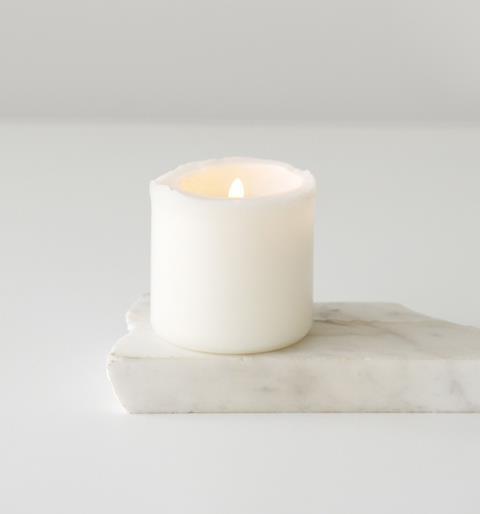Nutritionist Clare Backhouse shares some tips on improving our bedtime routines

Now that the UK clocks have been turned back an hour, we’re settling into winter’s rhythms and the hour longer in bed. For some of us, the longer nights are a luxury. But if sleep is an issue, they may be hard to appreciate.
Most of us have suffered from poor sleep at one time or other, and recognise that under water, bleary feeling, when a huge effort is required just to get through the day.
Thankfully, there is a lot we can do to encourage better rest at night. And giving ourselves the best possible sleep is a very concrete way that we can both love ourselves wisely, and love others too. After all, who doesn’t find kindness more feasible with a good night’s sleep behind them?
The importance of sleep
Back in January, I described how good sleep can support a healthy appetite in the morning, whereas poor sleep may trigger sugar cravings.
In fact, sleep is crucial for every aspect of our health, particularly immunity. Sleep is when our most important sickness-fighting is done. As our anti-inflammatory cortisol declines at night, that’s when healthy inflammation can get to work, eliminating pathogens and rebalancing the immune system.
Not surprising, then, that plenty of sleep supports recovery from colds and flu, which is particularly useful during winter.
Why sleep problems occur
Physiological causes for poor sleep include surgery, thyroid disorders, food intolerances and injuries. Stress, anxiety and depression can also play a part. And around the time of menopause, sleep may also become disrupted when shifting oestrogen levels interfere with the circadian rhythm.
However, not all sleep problems are physiological.
Some of the most common causes of poor sleep are environmental, such as noise disturbance, an uncomfortable bed or a bedroom that’s too warm or light.
Other common causes are to do with personal habits, such as:
- not going outside in the daytime;
- consuming alcohol, sugar or caffeine in the afternoon and/or evening;
- a too-varied sleep schedule (the body loves regularity);
- not enough time to relax before bedtime;
- too little daytime exercise, or too much evening exercise.
Preparing yourself for sleep
Thankfully, many of the causes of poor sleep are open to modification.
First of all, however, we simply need to allow time for sleep. It’s a bit like sabbath: taking sleep seriously means we intentionally opt out of the world’s rush and stress.
So you might like to make your bedtime routine a matter for prayer, and simply ask God what bedtime and rising time would be best for you and your family.
Once you have a plan, setting an alarm for going to bed may be as necessary as setting an alarm for getting up. I personally set an alarm for the same time each evening, and my friends know that that is when I’ll be leaving the party!
But before I go to bed, there are a number of things I do to prepare myself for deep rest. First, I prepare my thoughts and emotions. I turn off the Wi-Fi and all devices, so that I’m no longer having to deal with new messages, information or entertainment.
Avoiding screens for an hour or so before bed also helps to support the deep-sleep hormone melatonin. This is because the light receptors in our eyes interpret the blue light from screens as a signal for daytime, which contradicts the action of melatonin.
With everything switched off, I’ll briefly journal on paper to calm my thoughts. This is rather like the Ignatian prayer of the Examen, in which we review the day in the presence of God. Some families find it helpful to discuss the day verbally, getting any issues out in the open before sleep.
Next, I’ll get my body ready. I keep the lighting low, so that the light receptors in my eyes continue to log that it’s almost time for sleep. So in the bathroom, I’ll light a candle instead of switching on the overhead lights.
In the candlelight, I might take an Epsom Salt bath, or footbath, since the magnesium in the salts absorbs through the skin, helps to relax the muscles and aids deep sleep. Once ready for sleep, I’ll open the bedroom window, even if it’s cold outside, because coolness and fresh air are very supportive of deep sleep.
And before dropping off, I’ll do a few last practical things. I’ll turn on some white noise, to drown out the random sounds outside. (If you live in a city, this may be a big support for you.) And if the room isn’t completely dark, I’ll use a black eye mask, since proper darkness shows the body that it really is time to rest.
Last but not least, an eccentric but fabulous little sleep hack is to use a small piece of surgical tape to keep your mouth closed. The more we breathe through our noses at night (and many of us don’t), the more oxygen gets to our brain, which may help us to feel more alert in the morning.
It might sound crazy, but it has good scientific backing – and I certainly have never looked back.
Finally, if feel you’re ‘doing everything right’ and still can’t sleep, it may be worth finding a holistic practitioner to help you. Addressing the cause of the sleep problem may turn the long wintry nights into a blessing after all.
We advise you do your own research and check with your local health practitioner before trying mouth taping.
For more information, contact Clare through her website: transformationnutrition.org
Follow her @transformationnutritionuk

































No comments yet